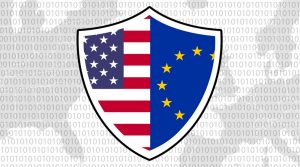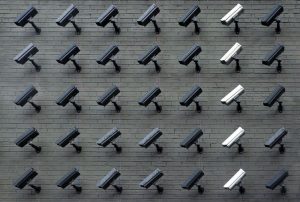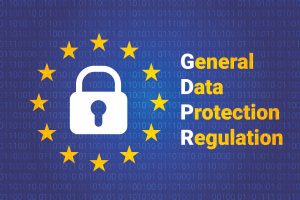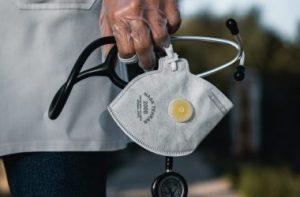
Court of Justice and Privacy Shield, EDPS positive comment.
The judgment of European Union Court of Justice, Grand Chamber of July 16th 2020 which declared unlawful the
Nel mondo digitale ed interconnesso la protezione dei dati personali e, più in generale, la tutela delle informazioni aziendali non è solo una necessità ma una vera e propria sfida, normativa e regolatoria. Tali dati ed informazioni costituiscono infatti un asset strategico e la loro sicurezza richiede un’attenzione costante e una competenza senza compromessi.
Il nostro Team offre consulenza d’eccellenza a livello nazionale ed internazionale nella privacy e nella cybersecurity con soluzioni su misura per le esigenze di imprese e di gruppi societari complessi e in continua evoluzione. Il nostro approccio nella gestione delle questioni legate alla protezione dei dati e alla cybersecurity ci consente di assistere con successo i nostri Clienti nella gestione dei rischi connessi alle sicurezza delle informazioni, lavorando sempre per garantire un equo contemperamento tra esigenze di legalità e di business.
Nel contesto attuale, le tecnologie emergenti stanno trasformando radicalmente il panorama operativo e normativo in cui le imprese si trovano ad operare. L’Intelligenza Artificiale (IA), in particolare, ha aperto nuove opportunità ma comporta, allo stesso tempo, anche sfide significative in termini di compliance rispetto a nuove normative. Il nostro studio legale è specializzato nell’offrire consulenza d’eccellenza nel campo del diritto delle nuove tecnologie, aiutando le aziende a navigare con successo nel labirinto delle regolamentazioni, in particolare con il nuovo Regolamento in materia di Intelligenza Artificiale dell’Unione Europea (AI Act).
L’era digitale sta evolvendo rapidamente e, con essa, le normative che disciplinano l’utilizzo dei dati e dei servizi online. Il Data Act, il Digital Services Act e il Data Governance Act, il Digital Markets Act sono solo alcuni dei regolamenti chiave che plasmeranno il futuro dell’Unione europea. Queste nuove normative pongono sfide legali complesse per imprese, società e gruppi societari complessi offrendo, allo stesso tempo, significative opportunità per una gestione più sicura, trasparente ed efficiente delle tecnologie digitali.
Il nostro studio legale è al fianco delle imprese per navigare con successo tra questi nuovi obblighi normativi. Offriamo consulenza strategica e operativa per garantire la piena conformità ai requisiti delle nuove normative emergenti, minimizzando i rischi legali e ottimizzando la gestione del cambiamento in ambito digitale.

The judgment of European Union Court of Justice, Grand Chamber of July 16th 2020 which declared unlawful the

Contribution by Alessandro Vasta and Giulia Lorandi of Tonucci & Partners on AboutPharma, with the article “Covid-19 and

In the article “The challenge for the new appointed Italian Data Protection Authority”, published on the online Digital

The Italian Data Protection Authority has heavily sanctioned a leading Italian credit institution in connection with a series of shortcomings in the implementation of minimum security measures discovered after a personal data breach suffered by the bank’s IT systems between 2016 and 2017 and subsequently notified to the authority.

In this special essay Prof. Avv. Alessandro del Ninno of Tonucci & Partners analyzes the first periodical report

Just over two months after its implementation, the Norwegian Data Protection Authority temporarily suspended the processing operations carried out through the app developed and adopted at national level for the purpose of monitoring and containing the spread of the COVID-19 virus (the “coronavirus”), addressing them as disproportionate and unnecessary due to various shortcomings in relation to the protection of users’ privacy.

Contribution by Ida Blasi of Tonucci & Partners in the magazine Dimostrare with the article “Privacy and defensive

With COVID emergency and the consequent lockdown, the number of people who use internet and digital devices has increased considerably. The number of cases of “digital infection”, particularly from ransomware, has increased accordingly. The Italian Data Protection Authority has recently published an informative guide lines regarding preventive methods to be adopted.

Contribution by Alessandro Vasta and Nicola Sandon of Tonucci & Partners on Agenda Digitale with the article “Anti-covid

Alessandro Del Ninno of Tonucci & Partners was interviewed by Key4Biz regarding the EU Guidelines about the interoperability

The Italian Supreme Court (Corte di Cassazione), recently returned to the topic of the so-called right to be forgotten, affirmed the need to preserve the historicity of news when it is of interest to the community and to the economic and social history of a Country, while reaffirming the need to balance the interest of the community to maintain the memory of past news with the interest of the individual to maintain control of his or her personal data. From this point of view, the Court considers the deindexing of news on the web together with its updating to be an appropriate measure to balance the individual’s right to be forgotten with the collective right to information.

Article by Alessandro del Ninno of Tonucci & Partners entitled “Dpcm 3d Stage, self-declaration (regarding the aviation sector)

